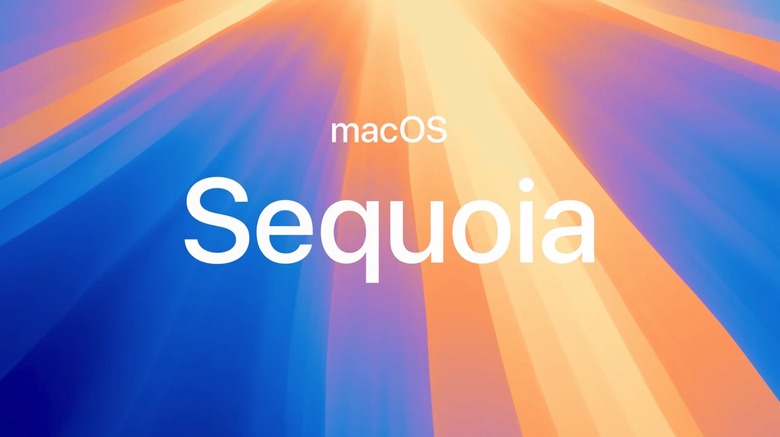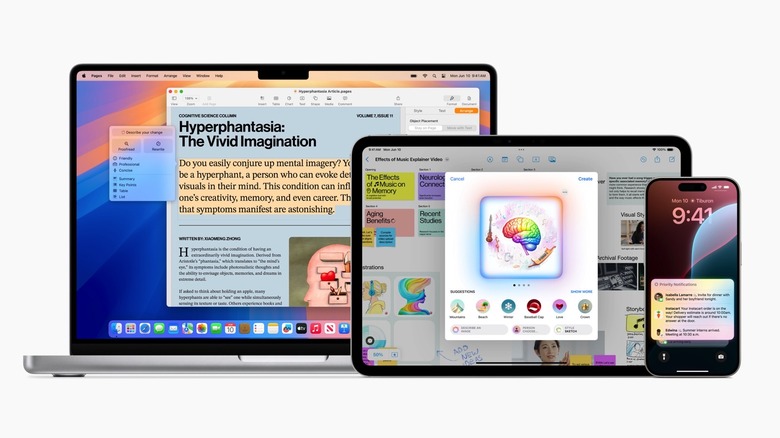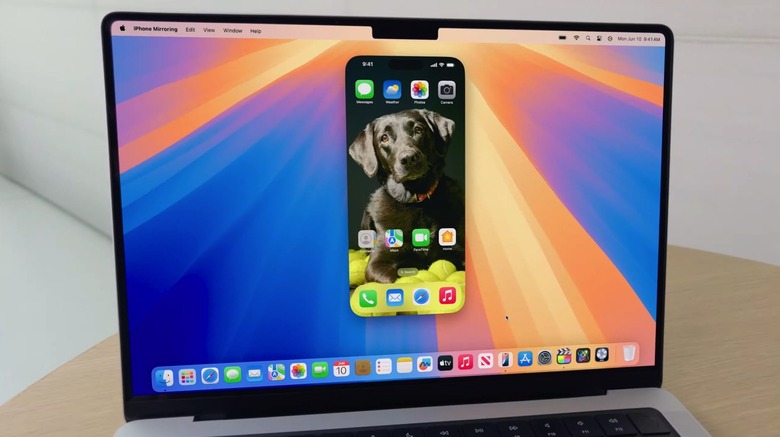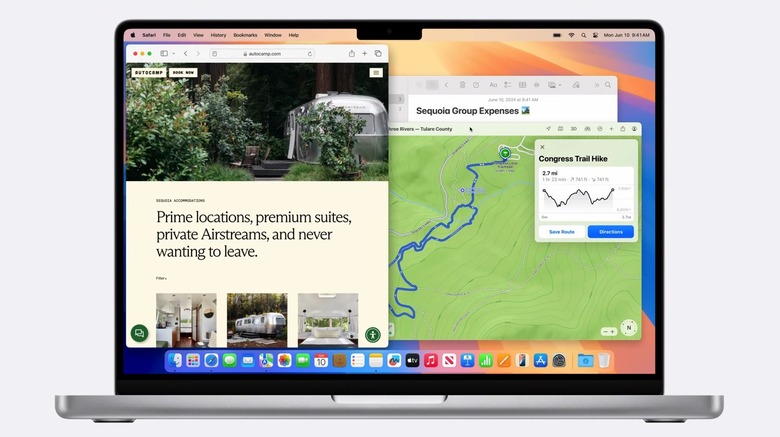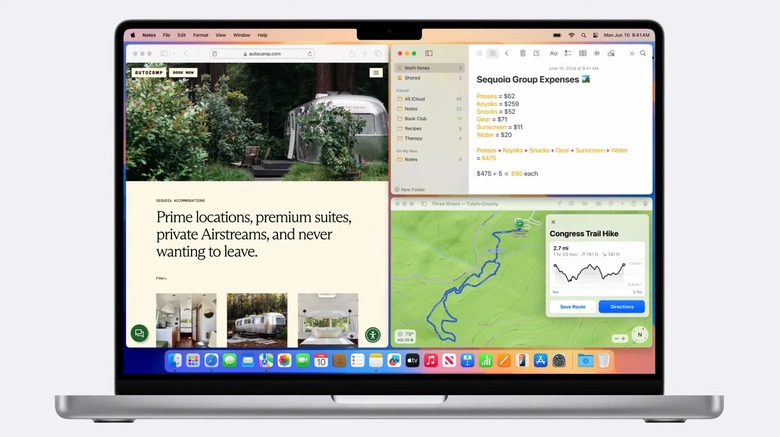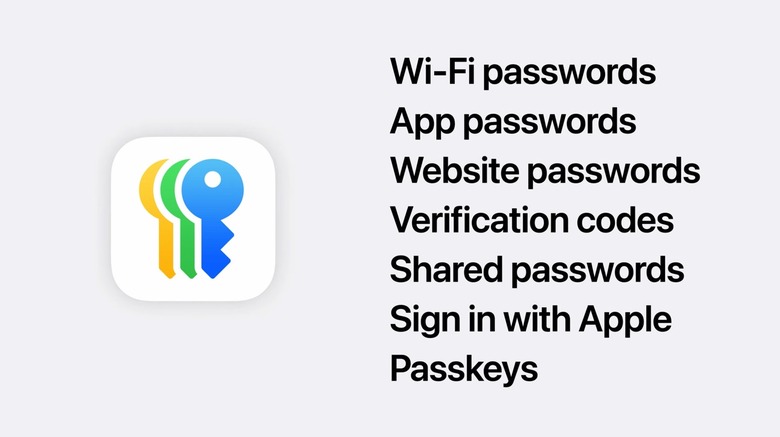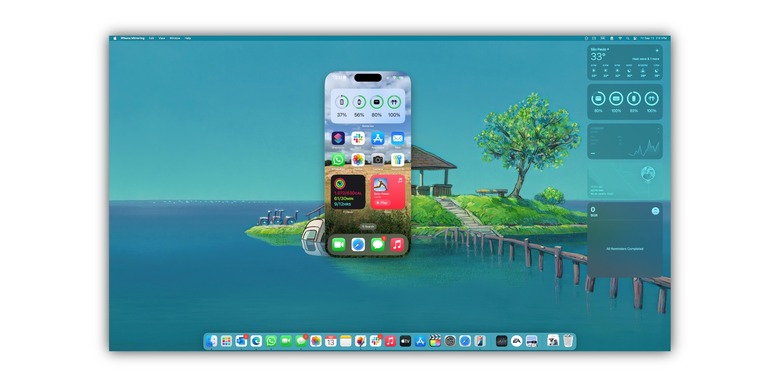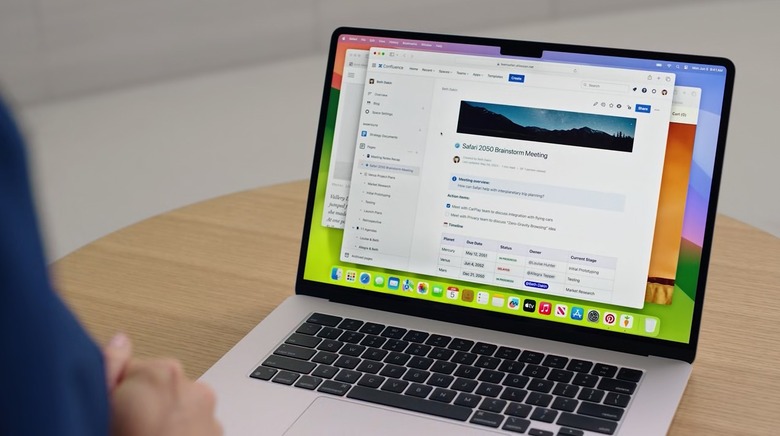macOS Sequoia 15: Features, Apple Intelligence, Download, Beta, Mac Compatibility
macOS Sequoia 15 is Apple's current system for MacBook laptops and Mac desktop computers. After tightening the integration between Mac and iPad in previous software updates, the company offered a lackluster update with macOS Sonoma, which focused on improved video call experiences and boosting gaming performances.
With macOS Sequoia, the company focuses on Apple Intelligence and a few new features for Mac users.
What will Apple call macOS 15?
macOS 15 is called macOS Sequoia.
macOS 15 release date
macOS Sequoia has been available since September 16, 2024. Its first beta was released on June 10, with a public beta made available the following month.
macOS Sequoia's Apple Intelligence features
Exclusive to Apple Silicon Macs, Apple offers Apple Intelligence, which is AI built-in with "privacy from the ground up." These are the main features:
- Writing Tools: Users can rewrite, proofread, and summarize text nearly everywhere they write, including Mail, Notes, Pages, and third-party apps;
- Image Playground: Users can create playful images in seconds, choosing from Animation, Illustration, or Sketch. This app is built right into apps like Messages and is also available in a dedicated app;
- Memories in Photos: Users can create stories they want to see just by typing a description. Apple Intelligence will pick out the best photos and videos based on the description, craft a storyline with chapters based on themes identified from the photos, and arrange them into a movie with its own narrative arc;
- Clean Up tool: This Photos app feature can identify and remove distracting objects in the background of a photo without accidentally altering the subject;
- Siri: Users type to Siri and switch between text and voice to communicate with Siri in whatever way feels right for the moment.
- ChatGPT integration: When you feel Apple Intelligence isn't enough, you can allow ChatGPT to access Writing Tools and other features for a better response.
They're available as part of the macOS 15.1 update. More on that below.
macOS Sequoia features
Besides Apple Intelligence, macOS Sequoia brings several new features for Mac users.
iPhone Mirroring
One of the biggest changes available with macOS Sequoia is the new iPhone Mirroring feature. This Continuity function allows users to fully access and engage with their iPhone right from their Mac.
Apple says that a user's custom wallpaper and icons appear just like on their iPhone, and they can swipe between pages on their Home Screen or launch and browse any of their favorite apps.
The keyboard, trackpad, and mouse on Mac also let users interact with their iPhone, and audio even comes through while the phone remains locked, so nobody else can access or see what the user is doing.
With macOS 15.1, Apple lets users seamlessly drag and drop files between iPhone and Mac.
Big Safari updates
These are some of the Safari features Apple added:
- Highlights: That's an easier way to discover information on the web, such as directions, summaries, or quick links to learn more about people, music, movies, and TV shows;
- Reader: A redesigned Reader includes even more ways to enjoy articles without distractions, featuring a streamlined view of the article a user is reading, a summary, and a table of contents for longer articles;
- Video detection: When Safari detects a video on the page, Viewer helps users put it front and center while still giving them full access to system playback controls, including Picture in Picture.
Window Tiling and video conferencing updates
Users can stay organized with new ways to arrange windows into a layout that works best for them. When a user drags a window to the edge of the screen, macOS Sequoia automatically suggests a tiled position on their desktop.
With new video conferencing tools, macOS Sequoia adds a new presenter preview that makes it easier to present. It lets users see what they're about to share before they share it and works with apps like FaceTime and Zoom.
Passwords App and new ways to stay safe
Building on the foundation of Keychain, the new Passwords app makes it easy for users to access their passwords, passkeys, Wi-Fi passwords, and verification codes.
In addition, Apple has released new features that let users lock and hide apps. When an app is locked or hidden, content like messages or emails inside the app is hidden from search, notifications, and other places across the system. Users can only unlock it with Face ID and Touch ID.
macOS Sequoia's additional features
There's even more available with macOS Sequoia 15:
- Messages have received major updates to improve users' expression and stay connected. These include all-new text effects, emoji and sticker Tapbacks, and the ability to schedule messages to be sent later.
- Apple Maps introduces even more ways to explore the world, including curated hikes and custom walking routes. Beginning this fall, users can browse thousands of hikes across all 63 national parks in the United States, filtered by length, elevation, and route type, and save them to use while offline.
- Photos now surface Collections, which automatically organizes a user's library by helpful themes. The search feature has also been updated so users can get results quickly. Here's everything you need to know about this Photos app revamp.
- Note-taking in Notes is getting smarter, making it easier than ever to take detailed and well-written notes. New audio transcription and summarization features with Apple Intelligence enable a device to take notes for the user, letting them stay present in a situation where they need to capture details about what's happening. And if they need to quickly crunch a number, they can just type in an equation to have it solved automatically in their note body.
- An updated Calculator app lets users see previous calculations with history and see their expressions as they type.
- Calendar shows events and tasks from Reminders, making it easy to see, edit, or complete tasks throughout the day. An updated Month View makes it easier to see events and reminders for an entire month at a glance.
Major software update
With macOS Sequoia now available, Apple keeps improving this software with more updates. These are the latest features introduced for this system:
macOS 15.1 features
Here's everything Apple Intelligence-related Apple added to macOS 15.1:
- Writing Tools: Proofread your text, rewrite different versions until the tone and wording are right, and summarize the selected text with a tap.
- Improved Siri: With a new design, Siri can maintain context between requests. Even if you stumble over words or shift what you're saying mid-sentence, Siri can understand what you actually want.
- Priority notifications: They appear at the top of the stack, letting you know what to pay attention to at a glance. Notifications are summarized, so you can scan them faster.
- Priority messages in Mail: Elevate time-sensitive messages to the top of your inbox, like an invitation that has a deadline today or a check-in reminder for your flight this afternoon.
- Clean Up: This Photos app feature can identify and remove distracting objects in the background of a photo without accidentally altering the subject.
- Summarization: Apple Intelligence can now summarize more than just Messages and Mail notifications.
- Record and transcribe calls in the Notes app: Just hit record in the Notes or Phone apps to capture audio recordings and transcripts. Apple Intelligence generates summaries of your transcripts, so you can get to the most important information at a glance.
- Reduce interruptions: With macOS 15.1, an all-new Focus Mode understands the content of your notifications and shows you the ones that might need immediate attention, like a text about picking up your child from daycare later today.
- Smart Reply in Mail: Quickly draft an email response with all the right details. Apple Intelligence can identify the question you were asked in an email and offer relevant selections to include in your response.
Besides that, Apple improved iPhone Mirroring, as users can drag and drop files between iPhone and Mac. It also fixed a pop-up overload issue.
macOS 15.2 features
Apple released macOS 15.2 on December 11. These are some of the features available:
- Image Playground: Users can create playful images in seconds, choosing from Animation or Illustration. This app is built right into apps like Messages and is also available in a dedicated app;
- ChatGPT integration: When you feel Apple Intelligence isn't enough, you can allow ChatGPT to access Writing Tools and other features for a better response;
- Create Images expansion: Another Apple Intelligence feature available with macOS 15.2 beta 4 is the ability to create an image when you highlight text in the Notes app.
Besides that, macOS 15.2 adds the following:
- Photos: Favorite album appears in the Utilities collection in addition to Pined Collections and Recently Viewed and Recently Shared album history can be cleared;
- Safari: New background images to customize your Safari Start Page, HTTPS upgrade tries to use secure HTTPS on all websites, and simplified import and export for history, bookmarks, and passwords are now available;
- Share Item Location in Find My helps you locate and recover misplaced items by easily and securely sharing the location of an Airtag or Find My network accessory with trusted third parties, such as airlines
- Natural language search in Apple Music and Apple TV app lets you describe what you're looking for using any combination of categories like genres, moods, actors, decades, and more
- Favorite Categories in Podcasts allows you to choose your favorite categories and get relevant show recommendations that you can easily access in your Library
macOS 15.3 features
macOS 15.3 was released on January 27 with these features:
- Genmoji: Create custom emojis by combining two or more figures; users can type a prompt like "monkey with pink hat" to make an entirely new emoji; here's how to use it;
Besides that, Apple has tweaked the Notification Summary with macOS 15.3. Not only did the summarized messages appear in italics, but Apple stopped summarizing news headlines. The company says it also makes managing settings for notification summaries from the Lock Screen (Mac with Apple Silicon) easier.
The company has also updated the Calculator app. When you click the equals sign again, it repeats the last mathematical operation.
macOS 15.4 beta features
Apple is currently testing macOS 15.4. These are the features we expect to see with this upcoming software update:
- All-new Mail experience: Mail is introducing new ways for users to manage their inboxes. On-device categorization organizes and sorts incoming emails into Primary for personal and time-sensitive emails, Transactions for confirmations and receipts, Updates for news and social notifications, and Promotions for marketing emails and coupons. Mail also features a new digest view that pulls together all of the relevant emails from a business, allowing users to quickly scan for what's important at the moment.
- New Apple Intelligence languages: Apple is adding Chinese, French, German, Italian, Brazilian Portuguese, Spanish, Japanese, Korean, and localized English for Singapore and India to Apple Intelligence.
In addition to these changes, Apple just added seven new emojis to the macOS 15.4 beta. The Unicode Consortium introduced these figures last May in beta. So far, the new emojis expected for iOS 18 include a face with bags under the eyes, a fingerprint, a leafless tree, a root vegetable, a harp, a shovel, and splatter.
How to download macOS Sequoia
macOS Sequoia is now available. Here's how to download it:
- Open the Settings app
- Open General and select Software Update
- Make sure to select macOS
How to download macOS 15 beta
Since June 10 you can try macOS developer's beta. On July 15, Apple released itss public beta. For the latter, you need to enroll your Mac in the Apple Beta Software Program to test this software's latest features. After that, follow the steps below:
- Go to Settings on your Mac;
- Open General and select Software Update;
- Click on Beta updates and check macOS 15 Developer or Public Beta.
Running the beta lets you try upcoming features before everyone else.
Compatible Mac models
As Apple focuses on Mac models with its own silicon, here's the list of macOS Sequoia compatible Macs:
- 2019 iMac and later
- 2017 iMac Pro
- 2020 MacBook Air and later
- 2018 MacBook Pro and later
- 2019 Mac Pro and later
- 2018 Mac mini and later
- 2022 Mac Studio and later
Review
BGR reviewed the initial release of macOS Sequoia. It's a great update, but light on features.
macOS Sequoia is yet another update light on features. iPhone Mirroring is amazing. Besides that, there isn't much to see here. Apple didn't improve the stability and battery of MacBooks as it used to do with previous software updates, either (even though the MacBook batteries are great!).
For me, Apple missed its chance to do a macOS High Sierra-like update, focusing on fixing bugs, improving performance, and just making macOS a more pleasant experience.
